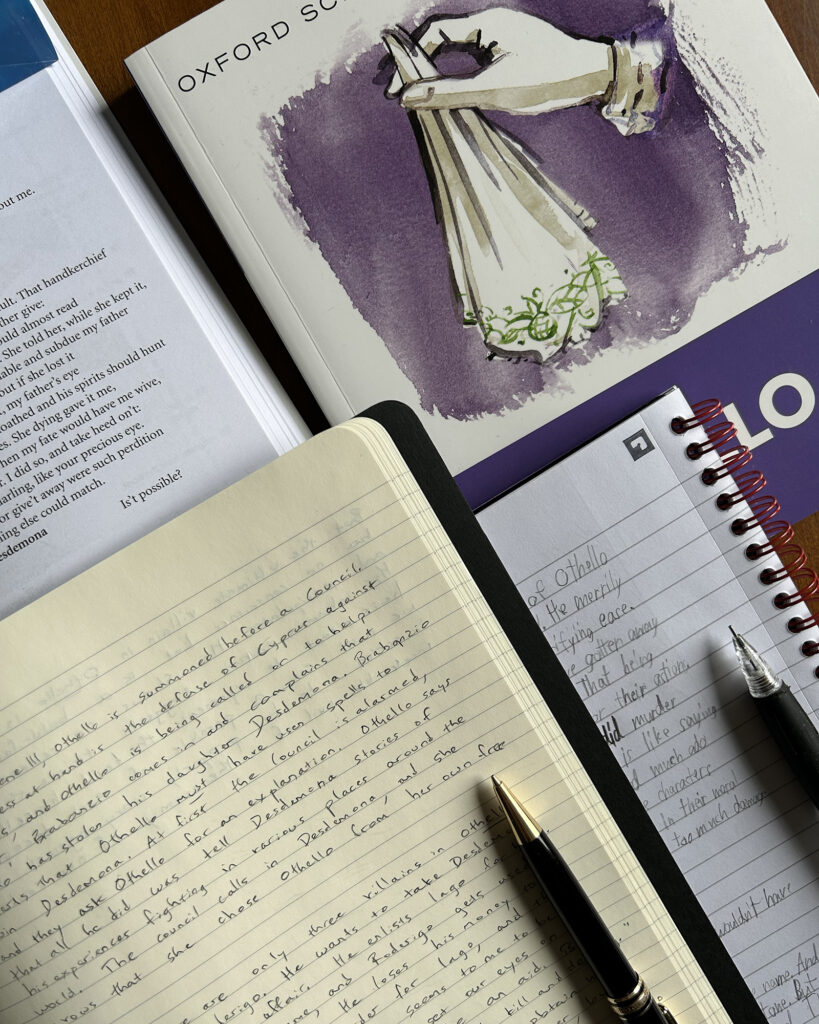CMP Review 2024-03-07
March 7, 2024

Exams are an intrinsic element of the Charlotte Mason method. “Knowledge is acquired only by what we may call ‘the act of knowing,’” she explains, “which is both encouraged and tested by narration, and which further requires the later test and record afforded by examinations.” So exams are not for testing. They are for knowing.
When I homeschool my son, we work side-by-side — whether the task is building a sloyd model, memorizing a poem, or… taking an exam. When we sit down to exams, we work silently and independently. Each of us, in our own separate way, performs our final act of knowing. Last week we finished our study of Othello. It was the first time I had ever read or watched the play.
In the months that our family read and narrated Othello, we discussed little. We were appalled by the story but we didn’t really analyze it. Then I was there with the exam question: “Who can be considered the main villain of Othello?” I stared at the blank page with pencil in hand and I thought.
I thought about how Mason wrote that “Shakespeare makes no mistakes in psychology.” I thought about how Iago was outside the range of human psychology. I thought about whether Shakespeare, who always portrays people so carefully, made a mistake this time. Then in a flash it dawned on me. The exam was doing its work. “Iago,” I wrote, “seems to me to be a symbol of the devil.”
I elaborated on the point and then we both finished. As is our custom we silently traded papers. I read my son’s answers and he read mine. I began reading and then my heart stopped. “The main villain of Othello is Iago,” wrote my son, “who more or less acts like the devil.”
The exam was indeed doing its work, leading father and son by separate paths to a common destination.
@artmiddlekauff